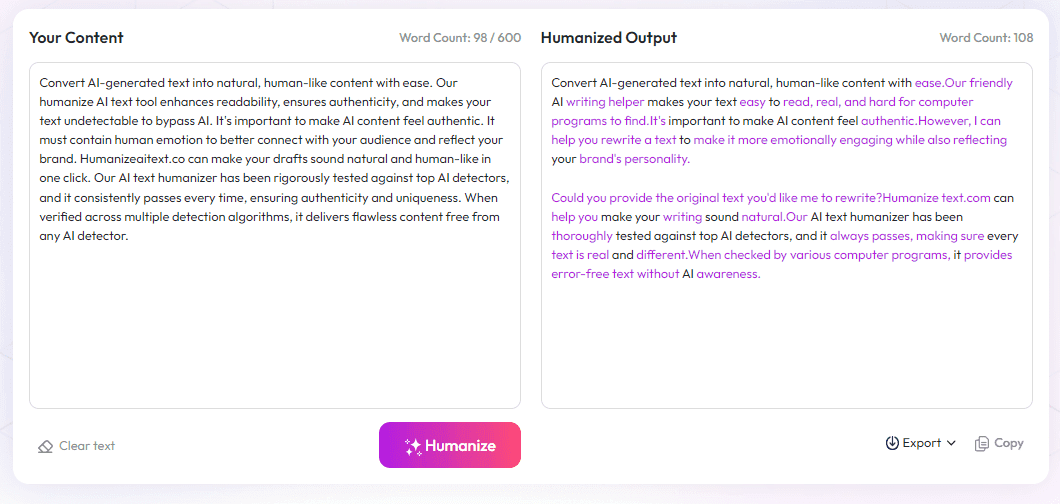Table of Contents
In today’s fast-paced digital environment, email communication continues to be a vital aspect of our personal and professional lives.
Emails are a cornerstone of modern communication, connecting us with clients, colleagues, friends, and family. However, the way we write and interact with emails is undergoing a significant transformation due to the rise of Artificial Intelligence (AI).
In this blog post, we will examine how AI is transforming email writing, making the process more efficient, personalized, and effective than ever before.
The Evolution of Email Communication
Email, a technology that originated in the early days of the internet, fundamentally transformed the way we communicate.
It replaced traditional pen-and-paper correspondence with a digital medium that allowed for instant communication worldwide.
However, despite its revolutionary impact, email communication has encountered challenges and limitations over the years. Traditional email writing often demanded considerable time and effort, resulting in delayed responses and occasionally even misinterpretations due to a lack of tone and context.
As communication evolved, the need for more efficient and effective email writing became clear.
This is where AI becomes a game-changer. Powered by sophisticated algorithms and advanced language processing, AI is transforming the landscape of email communication and addressing the limitations of traditional methods.
Understanding AI in Email Writing
At its core, Artificial Intelligence refers to the simulation of human intelligence in machines. Natural Language Processing (NLP), a subset of AI, allows machines to understand, interpret, and generate human language. This technology serves as the foundation for the AI tools that are transforming email writing.

AI-powered email writing tools use NLP algorithms to analyze context, language patterns, and recipient preferences to generate highly relevant and engaging content. These tools extend beyond simple templates, offering real-time suggestions that improve the content’s tone, clarity, and overall impact.
One notable example in this field is the AI tool “AI Automateed,” a groundbreaking platform that is changing how we approach email communication.
With AI Automated, users can automate different aspects of their email communication, from sending cold emails to creating entire email campaigns.
This tool demonstrates how AI is revolutionizing not only email writing but also the entire email marketing process.
AI-Enhanced Email Drafting
One of the most significant contributions of AI to email writing is its ability to help users draft emails.
AI analyzes the content of an email, its intended purpose, and the recipient’s profile to offer real-time suggestions for subject lines, greetings, and body content.
This ensures that the email connects with the recipient, enhancing the likelihood of engagement.
Imagine reaching out to a potential client for the first time. AI tools can analyze your message, comprehend the recipient’s industry, and recommend personalized content that grabs their attention. This approach not only saves time but also improves the effectiveness of your outreach.
Moreover, AI not only provides suggestions; it learns from your writing style and preferences over time, evolving into an indispensable writing assistant customized to your unique communication style.
Consequently, email writing transforms into a collaborative endeavor that combines human creativity with AI’s data-driven insights.
Personalization at Scale
One of the challenges in email communication has always been finding the right balance between personalization and efficiency.
AI has transformed this aspect by facilitating personalization on a large scale. Traditional methods typically required manually customizing emails for each recipient, which could be time-consuming and difficult to manage in extensive email campaigns.
AI-powered systems like “AI Automated” excel in this area. They analyze recipient data, including past interactions, preferences, and behaviors, to create emails that resonate on a personal level.
This level of personalization goes beyond merely using the recipient’s name; it involves tailoring the content to match their interests and needs.
For example, if you are an e-commerce company sending out product recommendations, AI can create personalized suggestions based on the recipient’s purchase history, browsing behavior, and demographic information.
Automating Follow-Ups and Responses
Timely follow-ups and responses are essential for maintaining effective communication. However, amidst a busy schedule, it’s easy for follow-up emails to slip through the cracks. This is another area where AI demonstrates its value by automating follow-ups and responses.

AI can identify specific triggers, such as a lack of response or particular actions taken by the recipient, and send automated follow-up emails accordingly. This ensures that important conversations are not overlooked and opportunities are not missed.
Additionally, AI can analyze the content of incoming emails and generate contextually relevant responses, saving users time while ensuring that replies are professional and accurate.
Imagine a scenario where you have sent a proposal to a potential collaborator. If the proposal remains unanswered after a certain period, AI tools can automatically send a polite follow-up, maintaining the conversation without your direct involvement.
This capability is transformative for professionals managing multiple conversations and commitments.
Polishing and Editing with AI
Even the most seasoned writers can miss grammatical errors and typos in their emails. This is where AI’s role in refining and editing becomes essential.
AI-powered tools can analyze email content for grammar, punctuation, and spelling errors, ensuring that your emails are free of mistakes and convey professionalism.
But it doesn’t stop there. These tools extend beyond basic proofreading; they offer suggestions to improve sentence structure, enhance clarity, and even recommend alternative vocabulary to make your communication more impactful.
Consequently, your emails convey a polished and sophisticated tone, creating a positive impression on recipients.
Overcoming Language Barriers
In our increasingly interconnected world, cross-lingual communication is becoming the standard. However, language barriers can impede effective communication.
AI has made significant progress in overcoming these barriers by providing real-time translation services.

These services can quickly translate emails from one language to another, enabling individuals and businesses to connect with a global audience effortlessly.
AI-powered translation services, like those integrated into “AI Automated,” not only deliver accurate translations but also take cultural nuances into account, ensuring that the message remains culturally appropriate and respectful. This is particularly advantageous for international businesses aiming to expand their reach.
Imagine a content creator working with an influencer from another country. AI can enhance communication by automatically translating emails, making the collaboration process smoother and more inclusive. The capability to bridge language gaps demonstrates AI’s potential in fostering global connections.
Data-Driven Insights and Analytics
One of the most valuable features of AI-powered email communication is the ability to leverage data-driven insights and analytics.
Traditional email campaigns frequently lack comprehensive data tracking, which makes it challenging to understand recipient engagement and preferences. AI transforms this landscape by offering in-depth insights into email performance.
AI can analyze engagement metrics, including open rates, click-through rates, and response rates. This information assists individuals and businesses in refining their email strategies by optimizing content, timing, and targeting.
The capacity to make data-driven decisions leads to more effective email campaigns and enhanced communication results.
AI leverages this data-driven approach, offering users comprehensive analytics on their email campaigns. This enables users to grasp what is effective and what is not, allowing them to make informed adjustments for improved results. The combination of AI and analytics introduces a new level of sophistication to email marketing strategies.
Ethical Considerations and Human Touch
While the contributions of AI to email communication are undeniable, it is essential to navigate this technological transformation responsibly.
As AI becomes increasingly integrated into our communication processes, it is essential to address ethical considerations. Achieving a balance between AI automation and preserving a human touch is crucial.

Recipients continue to value the personal connection that arises from genuine human interaction. Thus, while AI can aid in drafting, personalizing, and editing emails, it is essential to incorporate a sense of authenticity and warmth into the content.
Furthermore, respecting recipient privacy and obtaining consent for data usage are essential for maintaining ethical email practices.
AI addresses these ethical concerns by empowering users with AI tools while highlighting the importance of preserving human authenticity. The tool allows users to add their personal touch, ensuring that the communication remains genuine and relatable.
Looking Ahead: Future Possibilities
The journey of AI in email communication has only just begun, and the future presents exciting possibilities.
As AI continues to evolve, we can expect even more advanced features, such as AI-generated storytelling that conveys emotions and experiences with remarkable depth.
Emotional intelligence in AI could result in emails that not only convey information but also evoke emotions and foster connections.
Additionally, AI’s capacity to comprehend and adjust to individual communication styles could lead to email interactions that resemble more meaningful conversations.
As AI learns from our interactions, it may be able to predict our needs, draft emails for us, and adapt to our changing communication preferences.
Conclusion
In conclusion, the revolution of email writing through AI is not just a futuristic concept. It is a reality that is transforming the way we communicate.
By enhancing personalization, automating follow-ups, providing data-driven insights, and fostering cross-cultural connections, AI is significantly amplifying the impact of email communication in unprecedented ways.
However, as we harness the power of AI, let us remember that the human touch and ethical considerations are essential for meaningful communication.



